It was early in the morning and I was reading in my favorite chair, drinking my coffee. Then I heard the sound of a bedroom door opening somewhere in the house and waited for the familiar sight of a pajama-attired zombie peering in the living room.
What I was greeted with instead was a chipper 8-year-old ready to take on the world. Instead of a groggy request for breakfast, I heard, “Can I watch my history lesson again?” I told him he would have plenty of time to watch his next lesson in a few hours when it was time for school. He said, “No, Daddy, my lesson from yesterday. I want to watch it again.”
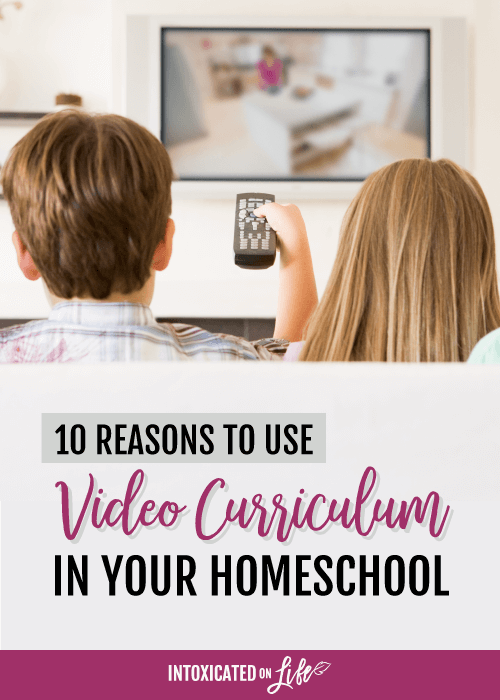
I looked outside at the twilight sky and thought: “You got out of bed this early to learn about Joan of Arc?”
This has since become a regular occurrence in my home, especially since we started using video curriculum to help our children learn.
Video curricula may not be right for every homeschooled student and every subject, but we have found video to be a valuable part of our homeschool day.
1. Well-produced video has been proven to increase student motivation.
Video is an artistic medium that, when made well, can present not just cognitive information but also invoke emotional appeal. This means students can be involved in affective learning.
Visual messages from video are processed in the brain’s limbic system, a completely different part of the brain than that which processes, say, text on a page. The limbic system triggers an emotional response, which aids in both memory and motivation.
For instance, Latin is not a subject my kids find all that motivating to learn, but when we introduced them to Visual Latin taught by Dwane Thomas, they took to it right away (read our review). Here’s my oldest son talking about it (the video is a few years old).
2. Video will save you time.
There have been times when video curricula has saved my wife valuable time.
In addition to homeschooling my kids, my wife also cooks, cleans, does laundry, takes care of our 3-year-old twins, and works on our blog. When she was pregnant with our twins, she was also in and out of the hospital a lot due to difficulties with the pregnancy. There were days that just getting out of bed was difficult, let alone having enough energy to homeschool.
Homeschooling moms can really benefit from video curricula because it can free them up to take care of other pressing matters, take care of smaller kids, get lunch ready, or to just sit down and rest. It can be a life-saver for work at home moms!
And when it comes to science courses like high school Biology that that may seem just plain overwhelming — quality video courses like Experience Biology and Experience Chemistry— allow you to continue homeschool all through high school (even though you’re no science teacher).
3. Video provides an educational alternative to mindless entertainment.
We intentionally try to limit our children’s screen time, but we do let them indulge in movies or short shows from time to time. We love being able to give them educational and enriching alternatives to Phineas and Ferb. When you find that educational program or curriculum that your kids beg to watch, you have found a winner.
A year or so ago I started showing my older kids the Modern Parables video series, which places the parables of Jesus in a modern context (read our reviews). It was great watching my kids emotionally engage in the stories—the same way Jesus’ original hearers might have engaged when they heard him—opening new opportunities to share the Word of God with my kids.
4. Video takes students on impossible field trips.
Whether we’re teaching my boys about the land of Israel for our Bible lesson, what the atmosphere is like on the planet Mars, or how the heart pumps blood around the human body, video has served as a valuable tool to take them places we either can’t afford to go or are impossible to show visually.
Our kids are now enjoying the video curriculum, Experience Astronomy, where we get to travel all over the universe together! And in Earth Science Explored they get to travel across terrain they’ve never seen.
5. Video aids in retention of ideas and concepts.
Video is, of course, only one teaching aid parents can use, but in several studies, video has been shown to be an aid in retention—specifically when paired with practical and hands-on activities.
When you can find a great video curriculum that includes other learning methods—reading of primary sources, hands-on-activities, and projects—you have a great resource on your hands. As my kids get into the middle school years, I’m looking forward to using the Dave Raymond’s American History video course, because it includes all these elements to aid in maximum retention (read our review).
6. Video can tap all learning styles.
There are three primary modes of taking in information: sight, sound, and touch. These three modalities relate to three learning styles. Visual-spacial learners think in holistic 3D images and big pictures. Auditory-sequential learners think in words and learn in a sequential, step-by-step process. Tactile-kinesthetic learners take in information through physical sensations and they benefit from demonstration more than verbal explanation.
Video can tap all three learning styles. Obviously, videos are inherently visual. But videos also include auditory explanations through verbal teaching, and they can also include demonstrations that are not otherwise possible in the home (such as complex science experiments).
7. Video provides a unique way to illustrate abstract concepts.
Visual learners can appreciate when an abstract concept is given shape through simple visuals or concrete examples. Video is a powerful medium to do this.
Economics, for instance, can be presented as a dry subject, but when it is presented in the light of the history of industrialism, warfare, politics, and the Bible, economics can come to life. This is exactly what Economics for Everybody does (read our review of this).
8. Video exposes kids to different lecturing styles.
Homeschooled children have their parents as their primary teachers, but with video, students can be exposed to lecturing styles that are different from their parents.
9. Video exposes kids to a modern artistic medium.
For traditional educators, it might be difficult to see video as an artistic medium. For many parents and educators, video is the enemy of education because of the flood of mind-numbing entertainment and the lack of boundaries in the home when it comes to screen time.
But video is a new artistic medium—and one that is bound to be an even bigger part of our culture into the foreseeable future. In fact, much like making a portfolio, the making of videos is a powerful way to help a child internalize concepts and facts.
Compass Classroom has a great video course about filmmaking for high school students, learning from the styles of famous film directors.
10. Videos can teach your kids a subject you don’t feel adequate to teach.
We took our fair share of courses in college about classical Western literature, but I don’t necessarily consider my wife or myself scholars when it comes to epic poetry or philosophy. But we don’t need to be when I use great video courses like western culture.
Can you homeschool without the use of video? Sure, of course you can. You can do so very effectively. But video can become a powerful way of bringing world-class lecturers and dynamic and memorable visuals into your home every week.
When you find a good curriculum that embraces other traditional methods of learning and supplements it with video elements, you can enrich your child’s education in profound ways.
Introducing…
Breakthrough video based courses for families who want quality homeschool education with a distinctly Christian worldview.
We want you to be confident your children are receiving the highest quality education possible from home, to know they’re experiencing a rigorous education, in a way that also works for your family’s busy schedule. As parents we don’t need to “know everything” (as the expert), but we do need to connect our students with expert mentors who could inspire them on their own journey.



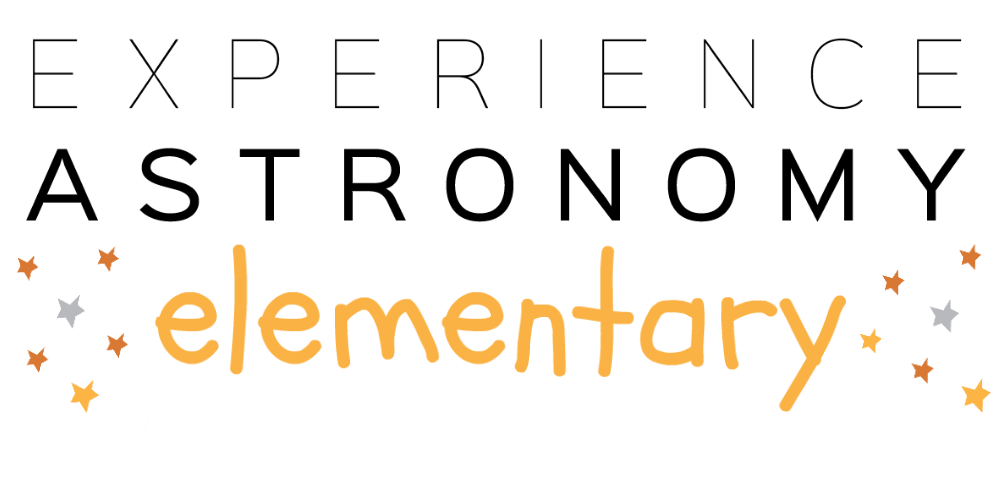





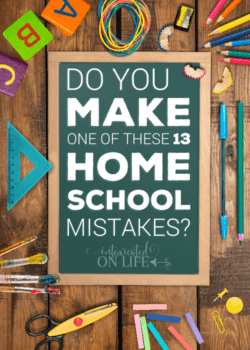
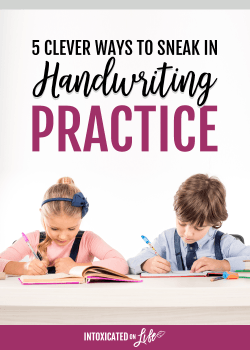

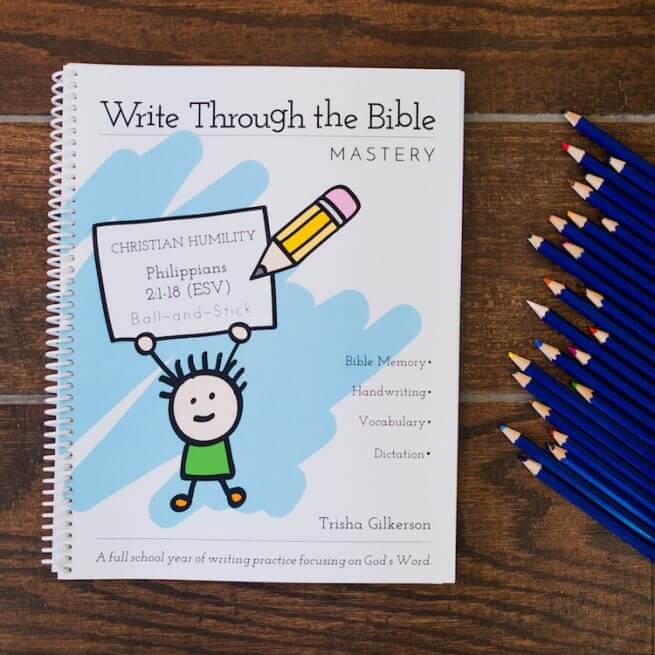
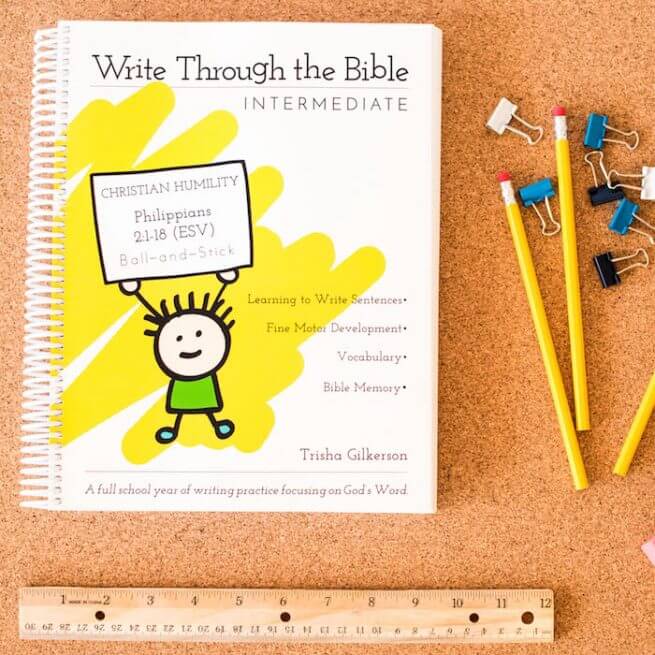
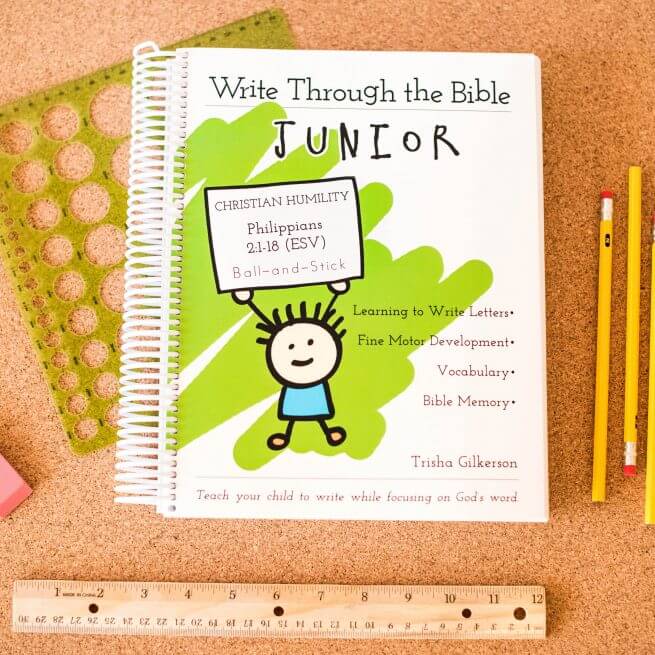


Fantastic post – thanks!
Glad you liked it!
All of the curriculum you referenced was for older children. Do you have recommendations for a 9 yr. old?
Hi Stephanie,
We actually began using the Latin curriculum referenced in this post with our son, I think when he was 8. We’re also probably going to be using their Vocabulary curriculum this year with him (he’s now 10), but I think from the previews you could probably use it with younger students as well. My soon to be 6 year old may enjoy it as Dwane Thomas is a very engaging teacher though likely will be a bit too young to get as much out of it as his older brother.
We also really like Veritas Press’ Self-Paced History courses. We’ve been using these for the past 3 years. They’re packed with information and are very engaging. It’s my son’s favorite course! We also have used and enjoyed The Institute for Excellence in Writing’s Teaching Writing Structure and Style.
As a special needs family we’ve been huge fans of video curriculum for years now. Moms get tired. And the Compass curriculum is excellent!
This is a tricky subject for me. I think each kid and family will be different. We tried the Veritas Press history curriculum at the end of last year. It was really well done and I loved all the visuals (like you said about taking impossible field trips). With that said, my son could not get past the medium. Like your son, he would come out each morning asking to do his lesson, but really he just wanted to be staring at a screen and pushing buttons. Also, his disposition changes noticeably after electronic use, which just doesn’t make it worth it. I’m sure some kids can handle it, but not my son for now =)
Another caution (which I would never accuse you guys of) is to make sure that if we are using videos, that we are not replacing reading with them. I think videos can make a great supplement, but there is much to be said of reading words off of a simple piece of paper as well =)
Thanks for the post!
This is an excellent post! I love using video for some of the same reasons.
Blessings,
Laura
You should check-out Crash Course on YouTube, amazing & free.
We built our own, tons of free stuff out there!
I will check that out!
Thanks for the great resources and ideas!